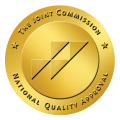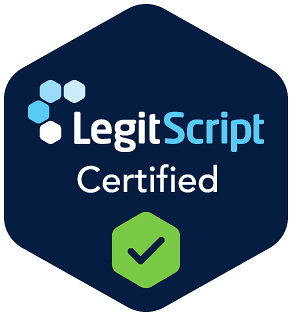Individuals who struggle with substance use disorders will need some addiction treatment at some point in their lives.
Addiction makes the lives of drug or alcohol-dependent individuals unmanageable. It bleeds into their work life, family life, and social life. Addiction to drugs or alcohol is a debilitating disease that few can escape from without some form of professional help and support. It is for this reason that the field of addiction medicine exists and the reason why there are drug and alcohol rehab programs. Medically supervised inpatient drug and alcohol detox facilities are needed to help medically stabilize drug or alcohol-addicted individuals who are going through the withdrawal process. But how do the different levels of care work? Terms like Full-Day Treatment Program, Half-Day Treatment Program, and Outpatient Program are used to describe the different levels of care in an outpatient drug and alcohol rehab. What do terms that describe these levels of care for addiction treatment centers mean? Today we will discuss one of these levels of care for a drug and alcohol rehab center and break down how it works. Today we will find out what is a full-day treatment program and discuss how it works.
What Is a Full-Day Treatment Program?
A full-day treatment program (often referred to as an FDT or FDT program) is one of the levels of care at an outpatient drug and alcohol rehab center. It provides structure and support for those struggling with substance abuse issues. Drug or alcohol-addicted individuals who have a difficult time maintaining their sobriety would benefit from this level of care. This program is held Monday through Friday for 5 hours each day, totaling 25 hours of therapy each week. The structure of full-day treatment is set up to include individual therapy and group therapy for the addicted individuals who attend. The individual therapy sessions in this program happen once each week and are held for one hour between a counselor or therapist and a drug or alcohol-addicted individual. These sessions aim to address the underlying causes of the individual’s addiction. This is done by utilizing therapeutic modalities such as Cognitive-Behavioral Therapy (CBT), Dialectical Behavior Therapy (DBT), Reactive Emotive Behavior Therapy (REBT), Motivational Interviewing (MI), and Trauma-Informed Therapy. Individual therapy sessions can be specialized to fit the drug or alcohol-addicted individual’s unique treatment plan. This could include the use of specialized or focused forms of therapy to address any issues or co-occurring disorders that a person may have. An example of this could include an individual session of Eye Movement Desensitization and Reprocessing Therapy (EMDR) for those who have experienced trauma or suffer from Post-Traumatic Stress Disorder (PTSD). By addressing the individual needs and issues the drug or alcohol-dependent person faces, they can identify obstacles in the way of achieving recovery from addiction. During the group therapy sessions, the drug or alcohol-addicted individual will meet with their peers in the FDT Program while a counselor or facilitator runs a group that targets specific topics that will help the addicted individuals in their recovery. In a full-day program for substance abuse, group therapy sessions are held in a supportive setting to allow the participants to feel safe. Group therapy topics can include:
- Psychoeducational Groups – These groups provide education on multiple topics such as anger management, trauma, conflict resolution, the relapse process, the neurobiology of addiction, nutrition, health and wellness, and family systems.
- Cognitive Behavioral Groups – These groups focus on building new skills, they can help develop effective anger management techniques and tools for relapse prevention, and explore thoughts in early recovery.
- Skills Development Groups – These groups work on developing techniques and applying what is learned in the Cognitive-Behavioral groups as well as incorporating life-skills development and meditation techniques.
- Support Groups – By providing a safe space for the participants to discuss various topics and allow for feedback to others. Some support groups include: relapse prevention, trauma, and gender-specific topics.
- Interpersonal Process Groups – These groups are like support groups. They allow participants to provide feedback on the topic but also examine the reactions and feelings of their peers who share during the group.
The facilitation of group therapy has several goals. The first goal of group therapy is to show the drug or alcohol-addicted individual that they are not alone in their struggles through the sharing of experiences with their peers. The second goal of group therapy is to create a therapeutic healing environment for the addicted individuals. The final goal of group therapy is to help individuals establish skills crucial to their recovery as well as help them identify faulty thinking and negative behaviors that have played a role in their addiction.
This is the bulk of what makes up a full-day treatment program. FDT programs often offer other various services such as Case Management, Family Counseling, Medication Management, and Medication-Assisted Treatment. These additional services are designed to help the drug or alcohol-addicted individual progress in the treatment as well as provide assistance in their aftercare plans.
Where Can I Find an FDT Program in Wakefield, MA?
If you are in the Wakefield, MA area and are seeking help with substance abuse or have a loved one who struggles with addiction to drugs or alcohol, Aftermath Addiction Treatment Center offers a full-day treatment program. Aftermath Addiction Treatment Center is an outpatient drug and alcohol rehab center that provides counseling and treatment for those struggling with substance abuse. Aftermath Treatment Center’s FDT program in Wakefield, MA uses industry-proven methods to treat substance use disorder in a safe and healing environment. The team at Aftermath Addiction Treatment Center prides themselves on the highly ethical and therapeutic approach to treating the disease of addiction provided at our drug and alcohol rehab facility in Wakefield, Massachusetts. Aftermath Addiction Treatment Center also offers a Virtual FDT Program through Telehealth services for individuals seeking treatment for substance abuse but have obligations at home that may make it difficult to commit to attending groups and counseling sessions at an outpatient drug and alcohol rehab.








